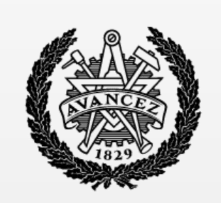 I was invited to speak to writing instructors at the University of Minnesota, Duluth, who are in the process of thinking through the information literacy portion of their learning outcomes. Always a pleasure to connect with a discipline that seems so closely aligned with academic library work.
I was invited to speak to writing instructors at the University of Minnesota, Duluth, who are in the process of thinking through the information literacy portion of their learning outcomes. Always a pleasure to connect with a discipline that seems so closely aligned with academic library work.
Abstract: For more than three decades, my job was to help students learn how information works. Though information literacy, as we call it, matters to me because inquiry is ideally a form of education that Paolo Freire called “the practice of freedom,” the students I worked with were understandably focused on formulating questions and selecting the kinds of sources that would satisfy their teacher rather than engaging in genuine curiosity. Tellingly, a Project Information Literacy study of recent college graduates found less than a third felt that college prepared them to ask questions of their own. Librarians and writing instructors both face a fundamental tension between our higher goals and the reality of our service roles to other disciplines. Two concepts that seem important but are too often overlooked are first, understanding the underlying ethical moves and commitments that characterize good honest work, whether it’s science, journalism, or an informative TikTok, and second, understanding how information systems shape our experiences, especially now that we no longer simply seek information, it seeks us. Today we’ll explore ways these concepts could be addressed without losing sight of the practical needs of writing instructors and their students to satisfy disciplinary expectations. Continue reading “information literacy, writing instruction, and the problem of stochastic parrots”
 This is a talk I prepared for
This is a talk I prepared for

 We’re developing a seven-week course that we proposed after a history professor urged the library to teach a course on fake news that everyone should have to take. We’re not using the fraught phrase “fake news” and we have no plans to force it on anyone, but it’s a great opportunity to think about what we mean when we say “information literacy.” Students think librarians know stuff about libraries, which is where you go to find information for school. We actually know stuff about information systems that are not mediated by libraries and information literacy is more than finding sources for assignments. This course will focus on information that we encounter through various channels, how those channels work, how to quickly verify a doubtful claim and (to use Peter Elbow’s phrase) how to play the believing game as well. As Mike Caulfield has
We’re developing a seven-week course that we proposed after a history professor urged the library to teach a course on fake news that everyone should have to take. We’re not using the fraught phrase “fake news” and we have no plans to force it on anyone, but it’s a great opportunity to think about what we mean when we say “information literacy.” Students think librarians know stuff about libraries, which is where you go to find information for school. We actually know stuff about information systems that are not mediated by libraries and information literacy is more than finding sources for assignments. This course will focus on information that we encounter through various channels, how those channels work, how to quickly verify a doubtful claim and (to use Peter Elbow’s phrase) how to play the believing game as well. As Mike Caulfield has  It seems as if Charlottesville was several years ago. It was a shock, seeing Nazis and white supremacists carrying torches on the campus of the University of Virginia campus, then invading the town carrying guns and the kind of gear that you’d think belonged to an angry offshoot of the Society for Creative Anachronism, unleashing threats, violence, beatings, and even murder. There was outrage, but since then there has been a strange drift toward accepting white supremacy. It’s fueling
It seems as if Charlottesville was several years ago. It was a shock, seeing Nazis and white supremacists carrying torches on the campus of the University of Virginia campus, then invading the town carrying guns and the kind of gear that you’d think belonged to an angry offshoot of the Society for Creative Anachronism, unleashing threats, violence, beatings, and even murder. There was outrage, but since then there has been a strange drift toward accepting white supremacy. It’s fueling  This coda to
This coda to 